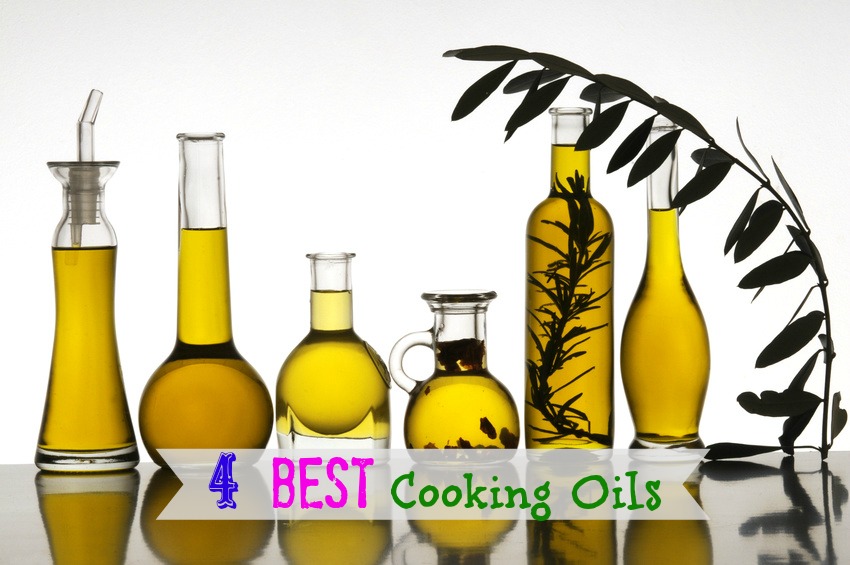I’ve always found the cooking oil aisle at the market to be one of the most impressive and overwhelming aisles to walk down. The shelves are lined with every imaginable variety of oil – peanut, olive, canola, vegetable and coconut –and each type has a few different brands and sizes.
When cooking with any oil it’s important to not heat it beyond its smoke point — the temperature at which the oil begins to smoke and discolor. Using cooking oil above its smoke point can generate toxic fumes and harmful free radicals. Most labels on bottles of oil will give you the smoke point temperature for that particular oil. All oils offer different benefits. Some are better for baking and some for salad dressing.
Here are a few cooking oils that are a chef’s best friend (there are a few affiliate links below):
Coconut
Coconut Oil is a subject of much debate in the cooking community. Why? Coconut oil has a high level of saturated fat. Federal dietary guidelines recommend that consumers limit saturated fat to less than 10 percent of daily calories. But nutritionists tell us that not all saturated fats are the same. The main saturated fat in coconut oil is lauric acid, which increases levels of good HDL and bad LDL in the blood. When you buy coconut oil try to organic
when you can.
Suggested use: cooking at high heat
Olive Oil
Olive oil is considered by some to be the healthiest oil because it provides a mix of monounsaturated and polyunsaturated fats. It can also be obtained in a very pure minimally processed form, which is a healthier version than a processed olive oil. Olive oil has a fairly high cooking temperature and adds great flavor to many dishes. Olive oil
would be best for cooking at medium heat.
Suggested use: light cooking or sauteing, salad dressing and other low temperature recipes
Peanut Oil
If there are no nut allergies in your family, peanut oil is the perfect choice for cooking. It has a high cooking temperature and is great for frying or any type of cooking at high heat.
Suggested use: stir frying, deep frying or cooking at high heat
Canola Oil
Canola oil sometimes gets a bad rap. It comes from canola seeds. They are a genetic variation of rapeseed that was developed in the 1960s. It’s a good source of monounsaturated fats, the kind which can help reduce “bad” LDL cholesterol levels and lower your risk of heart disease. The problem with canola oil is most canola oil is genetically modified (93 percent in the U.S.). If you are going to use canola oil make sure it’s certified organic
.
Suggested use: baking and stir frying at lower temperatures
Whatever type of oil you choose look for oils that are minimally processed and organic whenever possible. Also look for glass bottles over plastic to avoid potential leaching of toxic chemicals.
What’s your favorite cooking oil
Disclosure: This post contains a few affiliate links. If you use them a few pennies will go back into this blog. Thank you for support! All opinions are my own.

